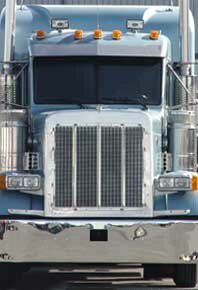

|
|||||||||||||||
 |
|||||||||||||||
Programs | Courses
Transportation Technologies
Do you have a talent for mechanics? Love cars and trucks? Get under the hood and learn the skills you’ll need to pursue your passion as an Automotive or Diesel Technician, or get behind the wheel with our Commercial Driver’s License (CDL) program.
Industry Overview
Automotive service technicians and mechanics must have an increasingly broad base of knowledge about how vehicles' complex components work and interact, as well as the ability to work with electronic diagnostic equipment and computer-based technical reference materials. Automotive service technicians use these high-tech skills to inspect, maintain, and repair automobiles and light trucks with gasoline engines. The increasing sophistication of automotive technology relies on workers who can use computerized shop equipment and work with electronic components, while maintaining their skills with traditional handtools.
Diesel service technicians and mechanics repair and maintain the diesel engines that power transportation equipment such as heavy trucks, buses, and locomotives. Some diesel technicians and mechanics also work on heavy vehicles and mobile equipment such as bulldozers, cranes, road graders, farm tractors, combines, diesel-powered passenger automobiles, light trucks, or boats. It is common for technicians to handle all kinds of repairs, from working on a vehicle's electrical system one day, to doing major engine repairs the next. Diesel maintenance is becoming increasingly complex, as more electronic components are used to control engine operation. In modern shops, diesel service technicians use hand-held computers to diagnose problems and adjust engine functions. Technicians must continually learn about new techniques and advanced materials.
Truckdrivers are a constant presence on the nation's highways and interstates, delivering everything from automobiles to canned foods. Firms of all kinds rely on trucks for pickup and delivery of goods because no other form of transportation can deliver goods from doorstep to doorstep. Even if goods travel in part by ship, train, or airplane, trucks carry nearly all goods at some point in their journey from producer to consumer. [Industry Overview is condensed from U.S. Dept. of Labor Bureau of Labor Statistics 2003 Career Guide to Industries: www.bls.gov/oco/home.htm]
SLTATC Programs and Courses
Programs
Each of the programs in the Transportation Technologies Division is structured to prepare you for a vital and needed career. Each program is made up of one or more specialized courses which, when added together, will give you the specific skills you will need to succeed in the workforce. The educational content of each of our programs is carefully scrutinized by an advisory board made up of industry professionals and business leaders from the transportation industry to make sure you will be learning the skills businesses want their employees to have.
Courses
Many of the individual courses within the Transportation Technologies Division may be taken separately or as part of a specific program. An individual class will give you a specific set of knowledge and skills. When taken as part of a program, a course becomes part of a comprehensive education designed to help you succeed in the workplace.
More Information
Because the Transportation industry is continually evolving and changing, programs and courses at the SLTATC are constantly evolving and improving so that you receive the best and most current training. Please see the individual program and course pages for the latest information.